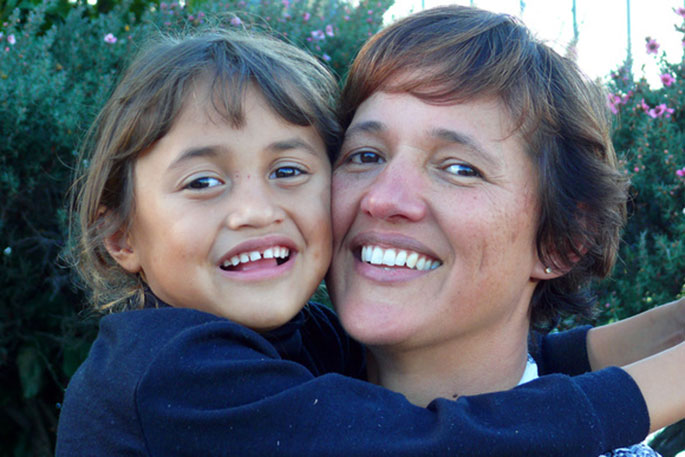The success of te reo Māori at schools is falling heavily on the shoulders of whānau, and the government should be doing more, a new report says.
The Council for Educational Research said the shortage of te reo Māori teachers and other policies were hindering te reo at schools.
Lead author Dr Maraea Hunia said it was too hard to access te reo Māori education, there are funding issues and not enough is being done to recruit teachers.
"There is still a severe shortage of te reo Māori teachers in both schools and kura," she said.
"We have known for a long time that teachers at kura find it really difficult to access professional development, because there are no relievers for them."
She said often that led to te reo teachers not receiving professional development.
The report looked at three schools and three kura across two regions in the North Island. It found the unpaid work of whānau is critical to the maintenance of te reo Māori education.
"In schools where there are kaupapa Māori, like te reo Māori and kapa haka and those things, there is more work," said Dr Hunia.
"It really is time to acknowledge that and show more support for that, at a political level."
It comes as no surprise to Debra Jensen, who has played an active role in her four children's' schooling through kura kaupapa in Wellington.
"I ran wānanga reo at the kura, composed items for our kapa haka... I have run workshops to help our kids get through Māori media studies," she said.
"It was certainly a hard slog and it certainly had its ups and downs in terms of the expectation put on us."
However, Ms Jensen said it was necessary in order to support reo Māori education for the students, and also for their whānau.
"That is that whole whakaaro around us being a collective and collectively moving forward towards te reo Māori outcomes."
The report, Tautokona te reo: The wellbeing of te reo Māori in kura and schools, found teachers had excessive workloads which got in the way of teaching te reo.
Audit of government policies
Educator Te Atawhai Kumar said that cultural connection means Māori teachers are invested in their jobs well after they leave the school gate.
She said, in te reo, their work loads could be overwhelming and more needed to be done to support them.
"He nui ngā taimahatanga kei runga i a rātou e kawe ana i roto i te akomanga, ki te taha whānau, ki te hunga kaiako," she said.
"He aha ngā rautaki kia whakamāmā ai ngā taumahatanga ki runga i a rātou."
The report is calling for an audit of government policies to look at their effects on te reo at schools. It calls for policy that is based on what is working now.
Te reo Māori advocate and mother-of- five, Debra Jensen said te reo Māori at schools should not just be about education but also about building up the language.
"They have co-copted Māori language in schools as something required for educational outcomes, but they are not language outcomes."
She said the two are separate endeavours but they are related, and she does not think the Ministry of Education has approached it in that way.
"If we can get some policy that addresses that, then we can start increasing the speaker pool so we can have more to draw from in terms of training teachers."
Government response
In a statement, the Associate Education Minister Kelvin Davis said work was underway to improve the supply of te reo Māori teachers and keep them.
"Whānau are definitely important but it is a combination of whānau and teachers working together," he said.
The government has a goal to integrate te reo Māori into the curriculum by 2025, and support teachers on their journey.
New funding of over $13 million in Budget 2018 was made available for a package of initiatives to better deliver te reo Māori education.
The main focus of the spending is improving the capability of school teachers to speak and teach te reo Māori, which will be directly mostly at English-medium school teachers.
"The best learning occurs when there is a mutually supportive relationship between the learner's whanau and the teachers."
A further $20m was allocated in the Budget to increase the supply of teachers, including Māori medium and te reo Māori teachers.




1 comment
less
Posted on 11-09-2018 20:08 | By dumbkof2
why should the govt be pouring more money into this. make the i want it crowd put some of their money into it
Leave a Comment
You must be logged in to make a comment.